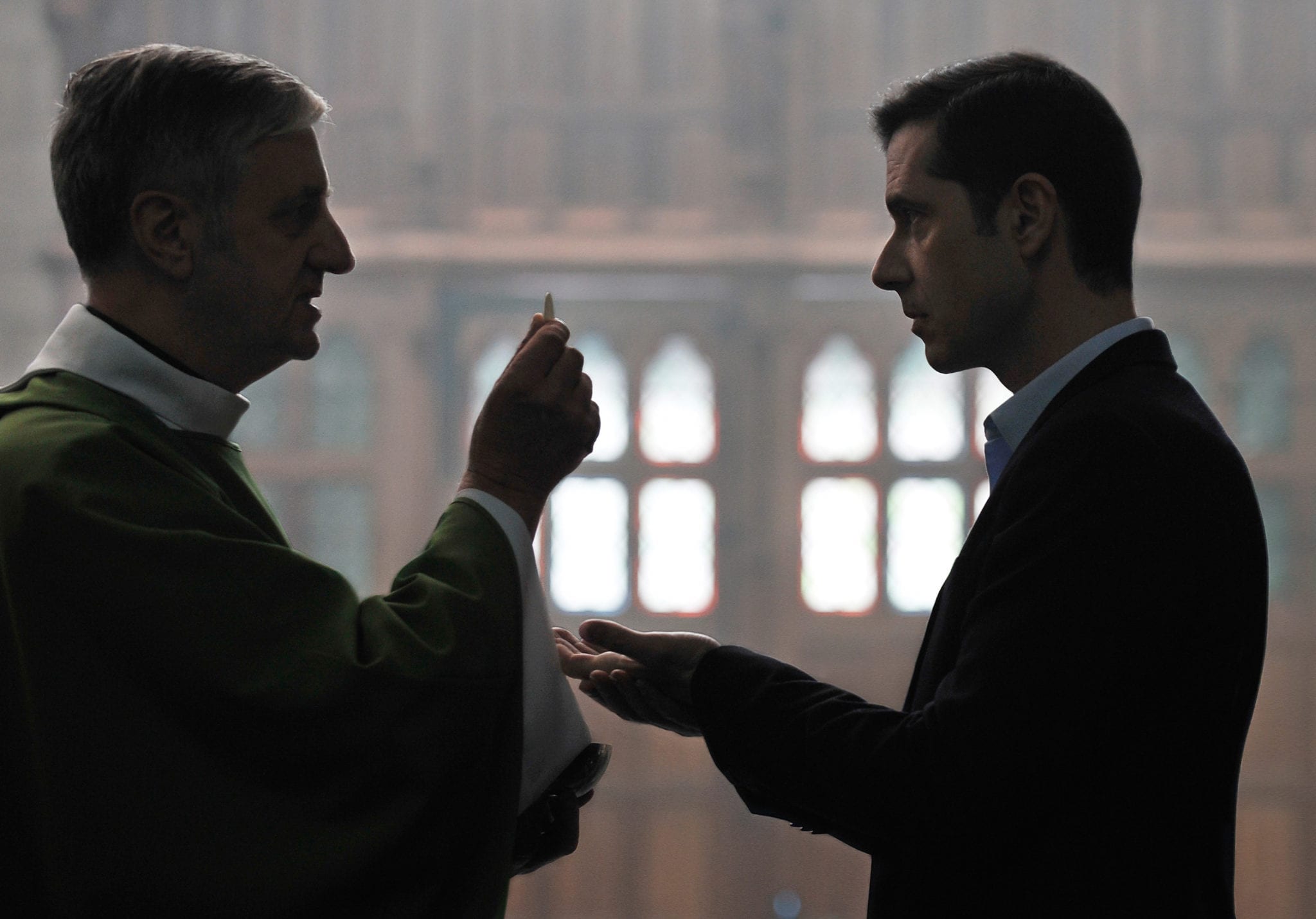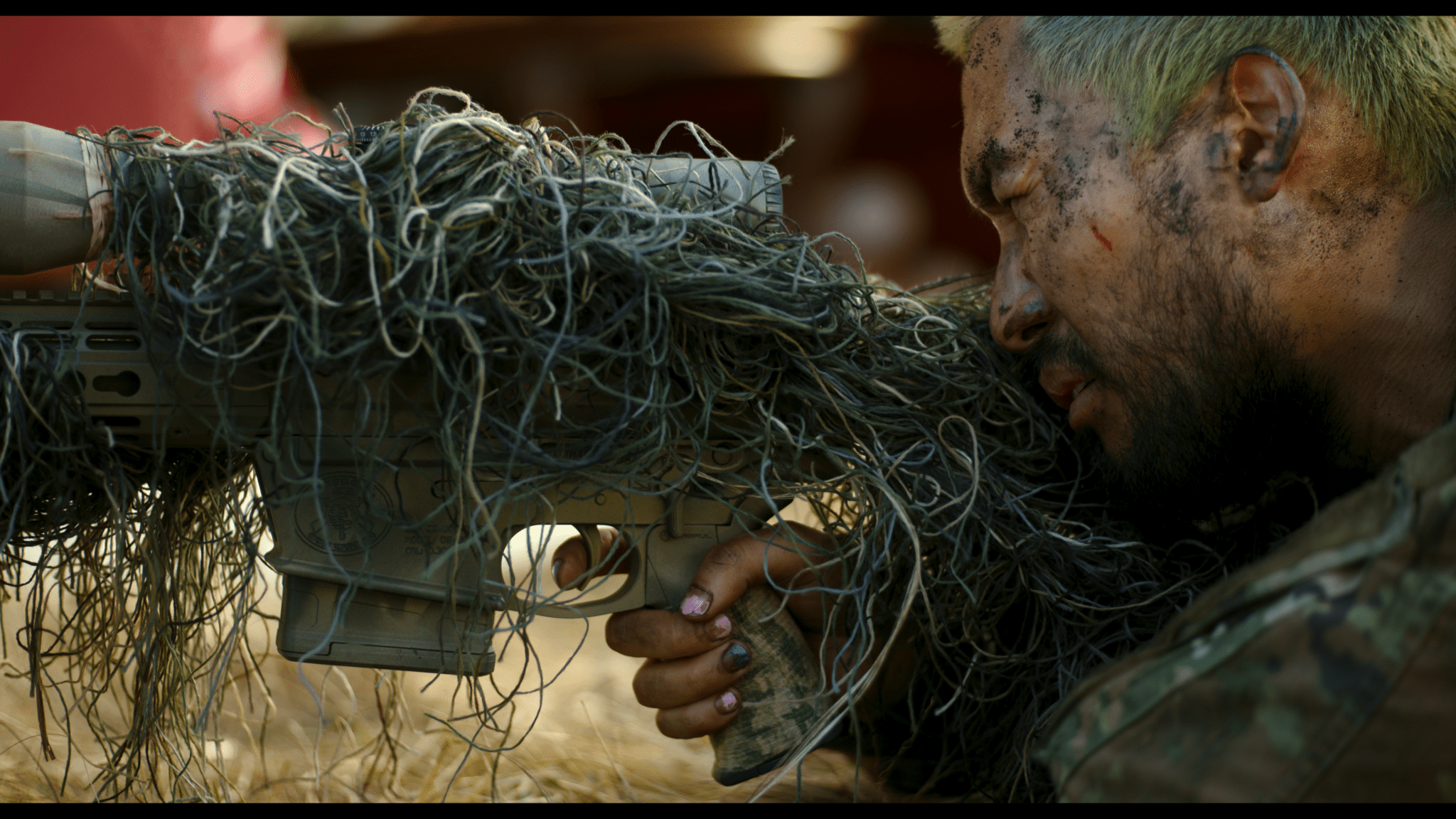?Deep down I knew. We all knew. We did nothing.?
Although it is not limited to the Catholic Church, sexual molestation of minors by clergy is an issue that continues to burden the church. In France, a notable example centered on a priest, Bernard Preynat, and the Archbishop of Lyon, Cardinal Barbarin, who oversaw the coverup. Fran?ois Ozon?s film By the Grace of God, is a fictionalized version of this affair of how a group of survivors challenged the church and its silence. The film won the Silver Bear at the Berlin Film Festival.
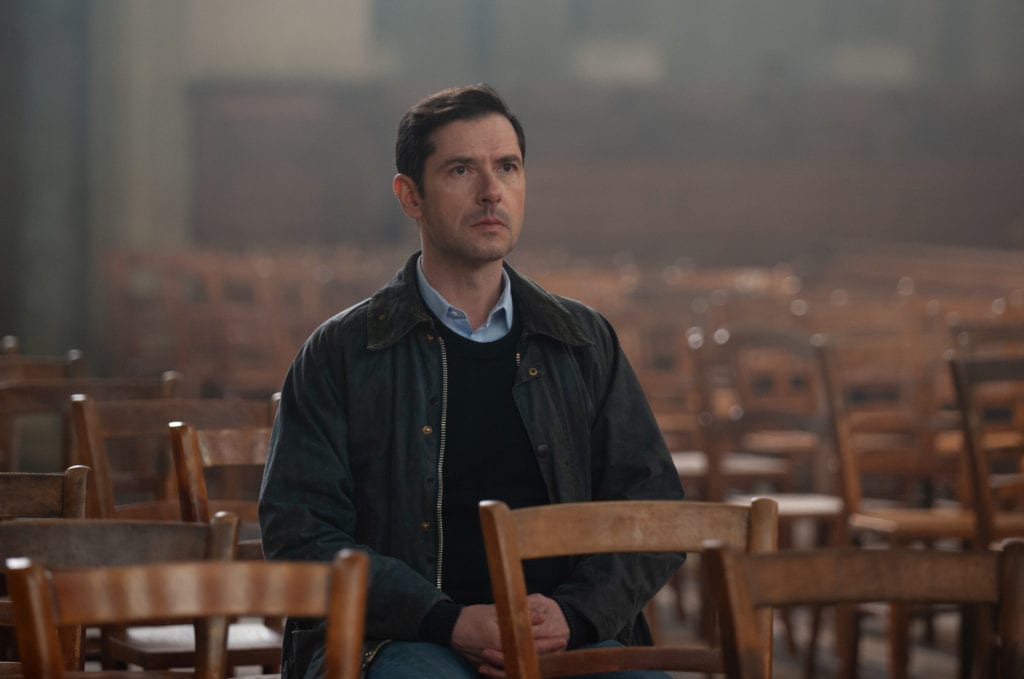
The film is not so much about the sexual assaults as it is about the way the institutions of the church failed to act to stop them. The first victim we meet is Alexandre (Melvil Poupaud), an ardent Catholic, who discovers that the priest who molested him as a child is still working and has access to children. He writes to Cardinal Barbarin (Fran?ois Marthouret) to raise his concerns, sure that the Cardinal, who has spoken out against pedophilia, will respond. Alexandre is invited to tell his story to R?gine Maire (Martine Erhel), the diocese?s psychologist who dealt with victims. He also asks to meet with the Cardinal, and they begin a correspondence about the process. Alexandre writes to the police who open an investigation, but because the statute of limitations has expired, there is nothing that the police can do with Preynat?unless they find more recent cases.
Such a case is Emmanuel (Swann Arlaud), who has written on the website. He is convinced to go to the police and press charges. Now the archdiocese faces even more attention. Press is following the story now. More and more victims make their stories known. Eventually seventy people will tell of their molestation. During much of this time Fr. Preynat continues to serve in the church.
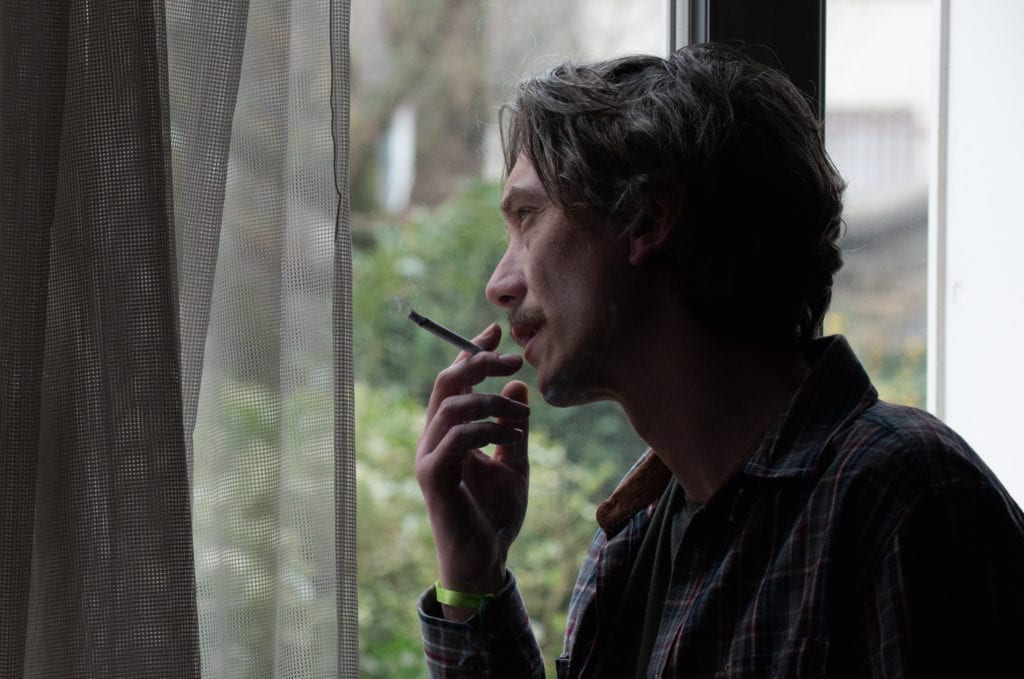
When Alexandre meets Fran?ois (Denis M?nochet) another victim of Fr. Preynat, they begin to form a community, using a website to encourage others to tell their stories. This increases pressure on the archdiocese. Alexandre is invited to meet with Preynat, with R?gine Maire in attendance. Preynat admits to everything, but claims he has gotten help. He does not, however, ask for forgiveness.
I found it of some interest that the film marks the passing of time (it covers about a two year span), not by a calendar, but via the liturgical year, noting various feasts and holidays as they pass. This creates an atmosphere that reminds us that this is not so much a secular issue as it is a religious one. And although secular issues, such as statutes of limitation, play a role in the film, the story we see deals with spiritual concepts in the lives of the characters.
Chief among those spiritual issues is the question of forgiveness. The question arises frequently about if the victims can or should forgive Prevnat. Forgiveness is a key part of Christian life, but it is often very hard to do. This conflict is evident in the scene in which Alexandre and Preynat, meet. At the end of the meeting, R?gine Maire has the three of them join hands to pray the Our Father. When the forgiveness clause comes up, Alexandre is unable to say the words.
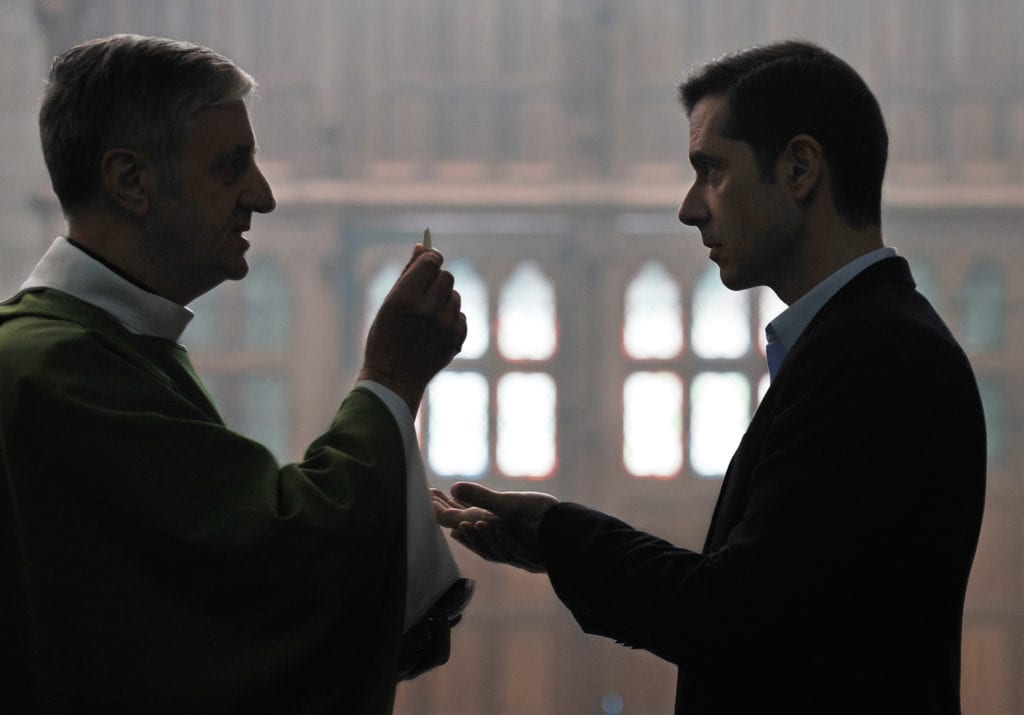
Another recurring issue is faith. Two of the three victims we follow continue to be devout. Only Fran?ois has renounced faith and the church. For Alexandre and Emmanuel, they are clear that they are doing this for the church, not to the church. They see what has happened not just as something that has harmed them, but has harmed and continues to harm the church itself. Their continued faith in the face of betrayal?first by Preynat, and continuing with the institutional lack of response?is a reminder that the church and the Gospel are powerful in people?s lives. But that makes the betrayals all the more treacherous. By the end of the film, the faith of those who have come forward is being tested greatly.
As I mentioned at the beginning of this review, clergy sexual misconduct is not limited to the Catholic Church, even if they get most of the press about it. This film brings the victims to the foreground. It does not set out to bash the church, but rather to shine a light on the institutional abuses that prevent accountability and by so doing fail to bring healing to victims and to the church itself.
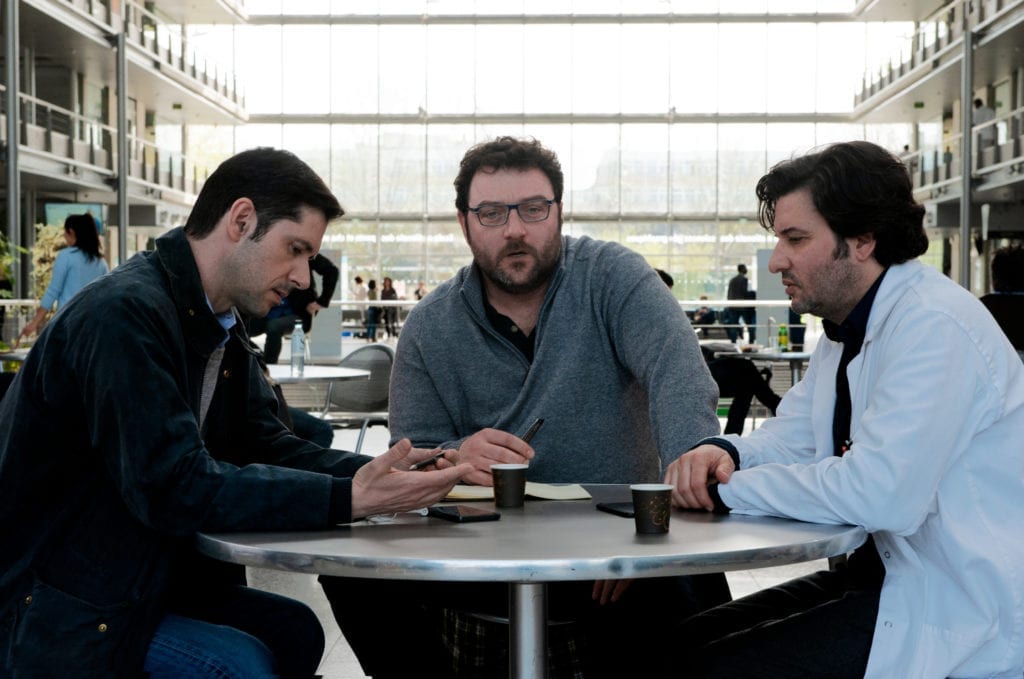
The film has some title cards at the end of the film that give the status of Fr. Preynat and Cardinal Barbarin as of the time the film was completed. However, since that time there have been new developments. An ecclesiastical trial was held that led to the defrocking of Preynat. Cardinal Barbarin continues to hold the title of Archbishop of Lyon, but has been removed from all administrative oversight of the diocese.
Photos courtesy of Music Box Films

